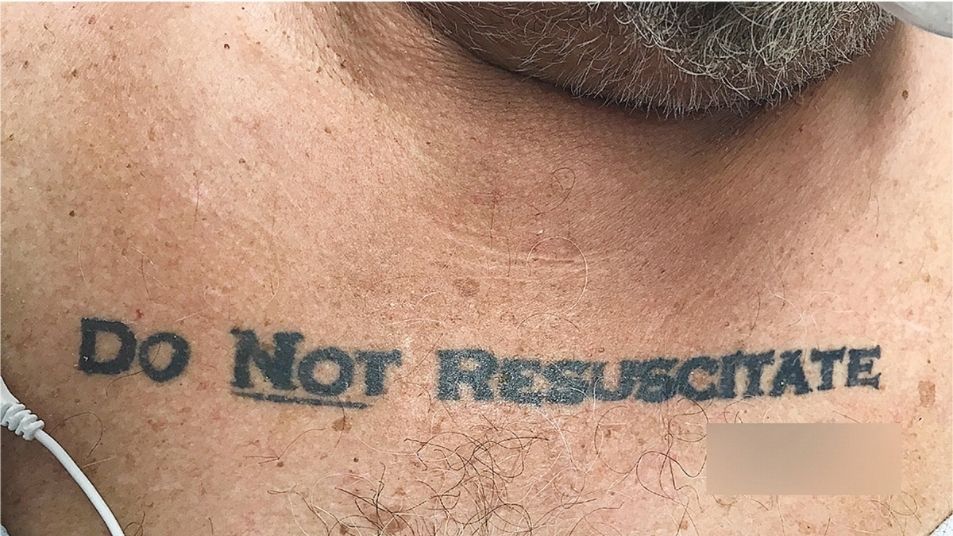
In December, the story of a man with a "Do not resuscitate" tattoo on his chest went viral. The 70-year-old patient arrived at Jackson Memorial Hospital in Miami, Florida unconscious, without identification, and without family.
Was the tattoo done impulsively or was it an accurate representation of the patient's preferences? Was it legally sound? Should the doctors honour it?
Doctors at the Florida hospital grappled with these questions and, as the story went viral, Australian doctors wondered how this would play out in Australia.
Our Medical Director Karen Detering spoke with James Bullen at ABC RN Health Report to discuss a better way to make your treatment preferences known.
"Often people get a little lost in whether it's legally binding, but when we're making decisions on behalf of somebody who can't make their own decisions, what we're trying to do is make the decision we believe that person would make," she said. "So if they've written an advance care directive and we have access to that, whether it's actually technically legally binding in the particular state where the person's getting treatment, it would certainly be very valuable and would likely guide treatment."
The episode also features Dr Greg Holt, Assistant Professor of Pulmonary Critical Care Medicine, University of Miami, and Professor Ian Olver, Oncologist and bioethicist, University of South Australia.
Listen to the episode at RN's Health Report website.